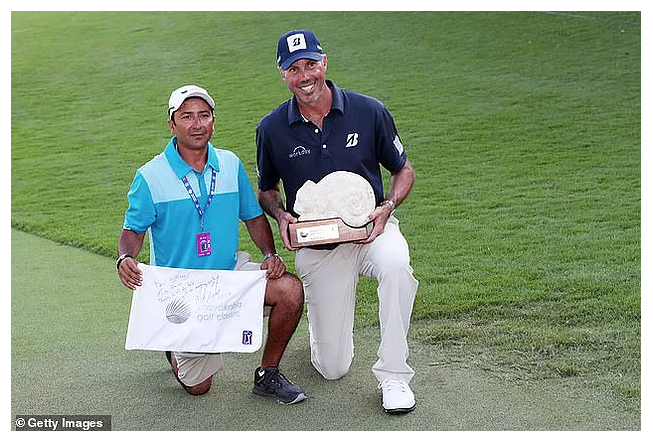
Matt Kuchar is one of the best golfers in the world. He recently played in a PGA event in Mexico without his regular caddie. He hired a temporary caddie at the last minute, a gentleman who is a caddie at a local Mexican course. David Giral Ortiz agreed to work as Kuchar’s caddie for the tournament for $3,000 for the week with an undetermined bonus to be paid based on prize money earned. It is not clear from media reports whether they had a written contract, but it is clear that they did not specifically agree to formula on how to calculate the bonus.
Kuchar, assisted by Ortiz as his caddie, had a great week and won the tournament. It was Kuchar’s first PGA victory in four years and he took home a paycheck of $1,296,000. Typically, a tour caddie will make 10 percent of the player’s winnings if his player wins. Kuchar, however, reportedly gave Ortiz (who is not a tour caddie) a bonus of $2,000 on top of his $3,000 agreed upon payment (0.15% of his winnings).
This is a perfect example of the importance of a written contract and the specificity of material terms within the contract. Assuming that Kuchar and Ortiz do not have a written contract with a specific bonus to be paid to Ortiz, the caddie will likely have a difficult road ahead of him should he decide to proceed towards litigation. When two parties have an agreement, the court will look to the agreement to determine each parties’ obligations towards each other. Without a written contract, the court is confined to what the parties agreed orally and without a clear agreement to pay a certain percentage or amount to the caddie, Kuchar likely will not have any obligation to Ortiz. Likewise, if there is a written contract, Kuchar likely will not owe anything to the caddie unless it specified the amount of the bonus or how a bonus should be calculated. Since Ortiz is not a tour caddie with the responsibilities that a full time caddie would have, he will have difficulty making the argument that his compensation should be commensurate to a full time tour caddie who obtains a 10 percent bonus upon his player winning, unless the contract said so. More troubling for Kuchar, though, will be public relations hits that he may take given his decision to pay his caddie so little in light of his $1.3 million pay day.
Contracts should be carefully drafted and, if possible, reviewed or drafted by an attorney so that you are educated as to the terms of the contract, your responsibilities under the contract, and your legal rights.










